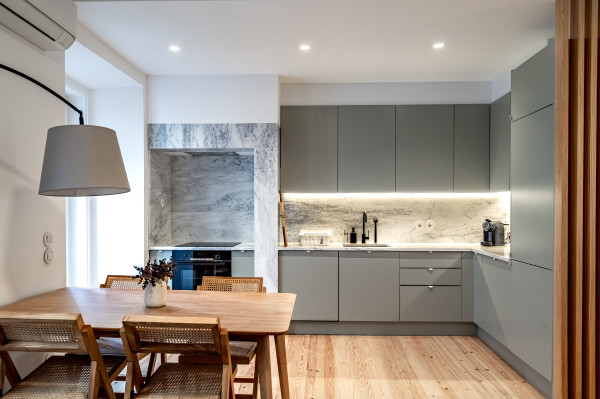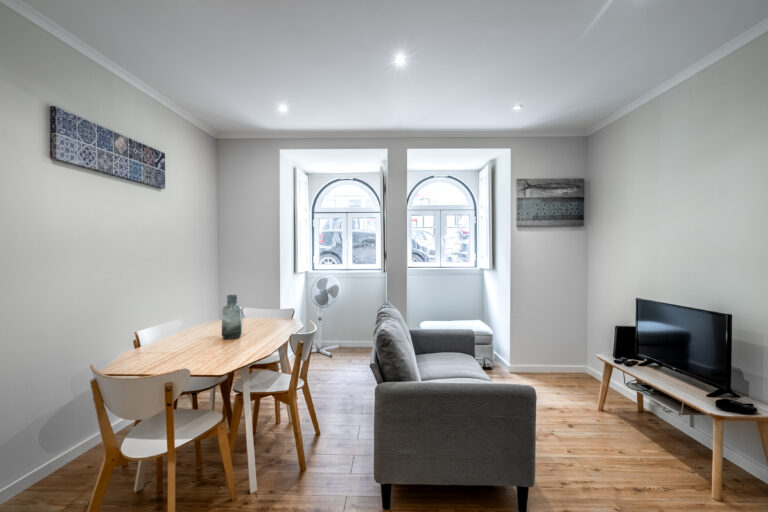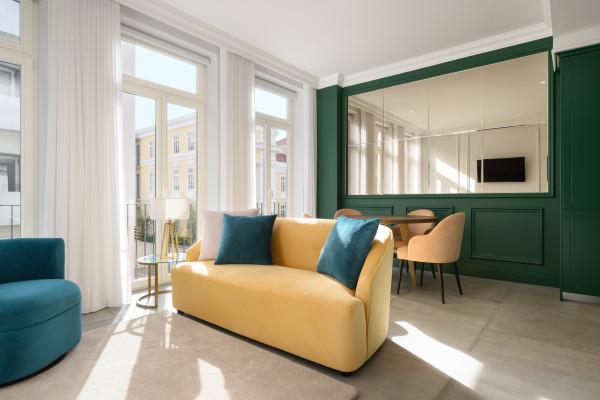The Portuguese vacation rental industry has undergone a significant shift in recent years. Traditionally dominated by short-term holiday rentals, the landscape is now experiencing a shift towards mid-term rentals. The rental transition from Short-term to Mid-term is driven by various factors including regulatory changes, market demands, and the growing appeal of Portugal as a destination for digital nomads and expatriates.
In this blog post, we’ll explore the reasons behind this shift, its impact on different stakeholders, and what it means for the future of renting in Portugal.
The Vacation Market
The Short-Term Rental Boom
For the past decade, Portugal has enjoyed a tourism boom, with cities like Lisbon and Porto becoming hotspots for travellers worldwide. The growth of platforms like Airbnb and Booking made it easy for property owners to capitalize on this trend by offering short-term rentals. This model provided high returns and flexibility for landlords, and a diverse range of accommodation options for tourists. However, the rapid growth of short-term rentals led to several challenges. Residents faced skyrocketing rental prices and a scarcity of long-term rental options.
The Rise of Mid-Term Rentals
Mid-term rentals are accommodations that typically range from one month to one year, catering to a different demographic rather than short-term rentals. They provide a blend of stability and flexibility, ideal for individuals in transitional phases of their lives, such as students, professionals on temporary assignments, or families while relocating.
The rise of mid-term rentals in Portugal is a direct result of the recent changes introduced by the “Mais Habitação” package that came into effect in October 2023. This package suspended the issuance of new short-term rental (AL) licenses in certain high-demand areas and categories like Lisbon and the Algarve.
These regulatory changes aimed to balance the needs of tourists and residents, promoting a more sustainable rental market. However, they also prompted many property owners to reconsider their business models.
Impact & Benefits on the Market
For Property Owners
For Tenants
For Communities
Local communities are likely to experience positive changes as mid-term rentals bring a more stable and integrated population. This shift can help alleviate some of the pressures caused by tourism, such as noise, overcrowding, and the displacement of long-term residents.
Preparing Your Property for Mid-term
Determining if Your Property is Suitable
Before listing your property for mid-term stays, it’s essential to assess whether it’s a good fit. Consider the amenities and location advantages that would appeal to this target audience. Mid-term renters are looking for practical features like functional work areas, storage solutions, comfortable lounging spaces, a well-equipped kitchen and laundry facilities.
Tailor Your Listing
An important part of the rental transition from short-term to mid-term should be the listing description, as your property should now focus on livability rather than vacation appeal. Start by emphasizing amenities that cater to extended visits and consider adding virtual tours or video walkthroughs to give potential renters a comprehensive view of the living space.
To attract potential mid-term renters, create a description that highlights proximity to grocery stores, public transportation, and local amenities. Consider what type of guest might be attracted to your property’s neighbourhood and show those features in your listing.
Adjusting Your Marketing Strategy
To effectively market your mid-term rental, shift your focus from the traditional vacation rental channels to platforms that cater to longer-term stays. Platforms like HousingAnywhere, Spotahome, Homelike, and Spacest can be valuable resources for reaching your target audience.
Maintenance & Upkeep
With longer stays, it’s crucial to have a regular maintenance plan in place. Schedule regular check-ins and cleanings to keep the property in top condition. Provide guests with clear instructions on how to report issues and ensure prompt responses to their concerns. Stock the property with cleaning supplies and consider offering bi-weekly or monthly cleaning services for an additional fee.
Adjusting Your Pricing Strategy
Pricing for mid-term rentals differs significantly from short-term stays. You’ll need to change your rates to remain competitive while ensuring profitability. Evaluate and research market rates in your area. Look at comparable properties and consider factors such as location, amenities, and seasonality. This will help you set competitive prices that reflect the local market while ensuring a healthy return on your investment.
Remember to update your property’s rules and policies to reflect the longer-term nature of stays. Be clear about expectations regarding utilities, maintenance, and any included services.
The rental transition from Short-term to Mid-term in Portugal is likely to continue as the country adapts to changing market dynamics. With the rise of remote work and the increasing mobility of professionals, the demand for flexible and longer-term accommodation options will persist.
Property owners who can navigate the regulatory landscape and cater to the needs of mid-term tenants will be well-positioned to thrive. Meanwhile, communities and local economies will benefit from a more balanced and sustainable approach to tourism and housing. By embracing this transition, Portugal can continue to offer a welcoming environment for both residents and visitors, ensuring its place as a top destination for years to come.
Follow Us
Lisbeyond is always here to help, and also to answer all your questions, so if you have any ideas on a topic you would like to read, feel free to contact us only a click away.





